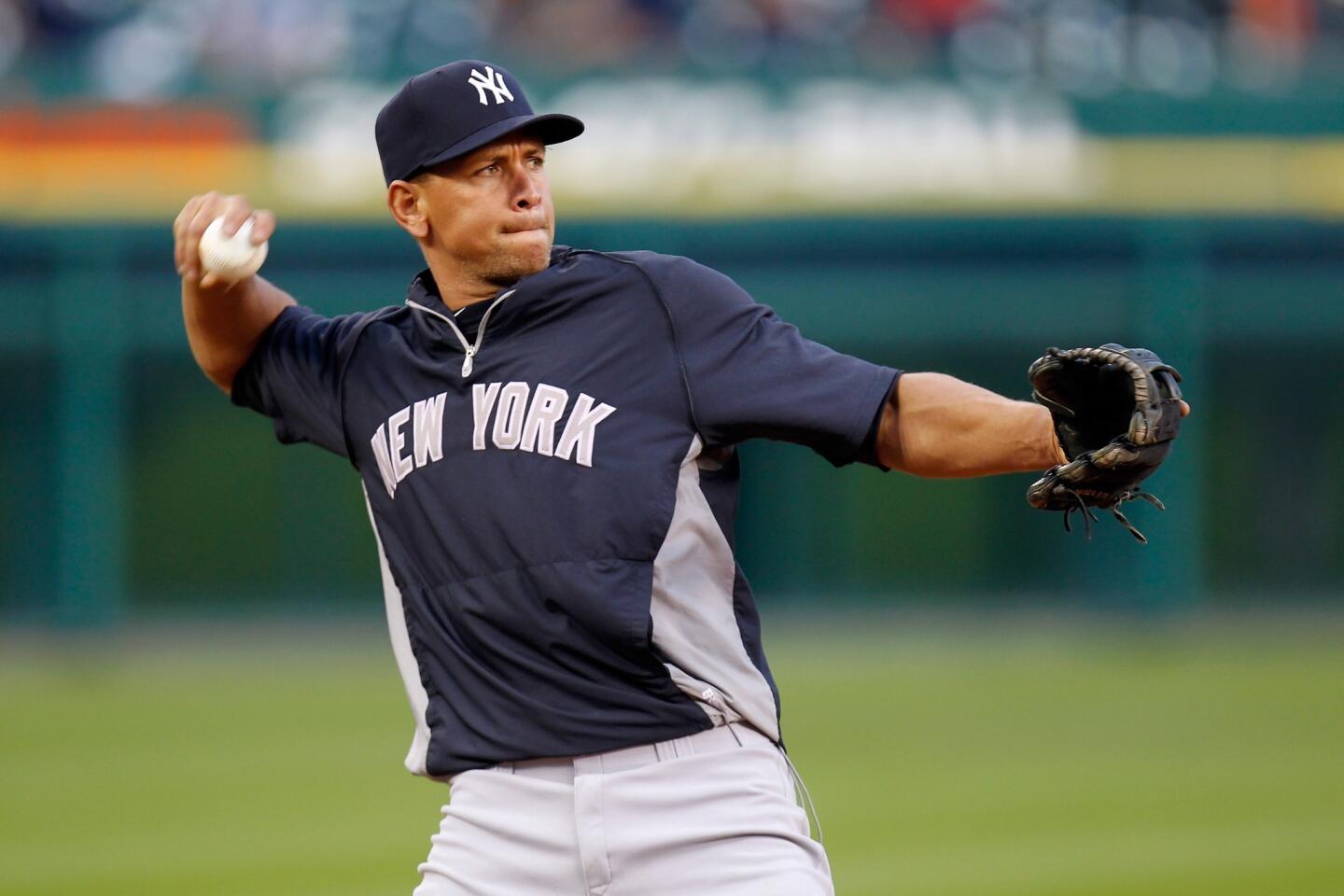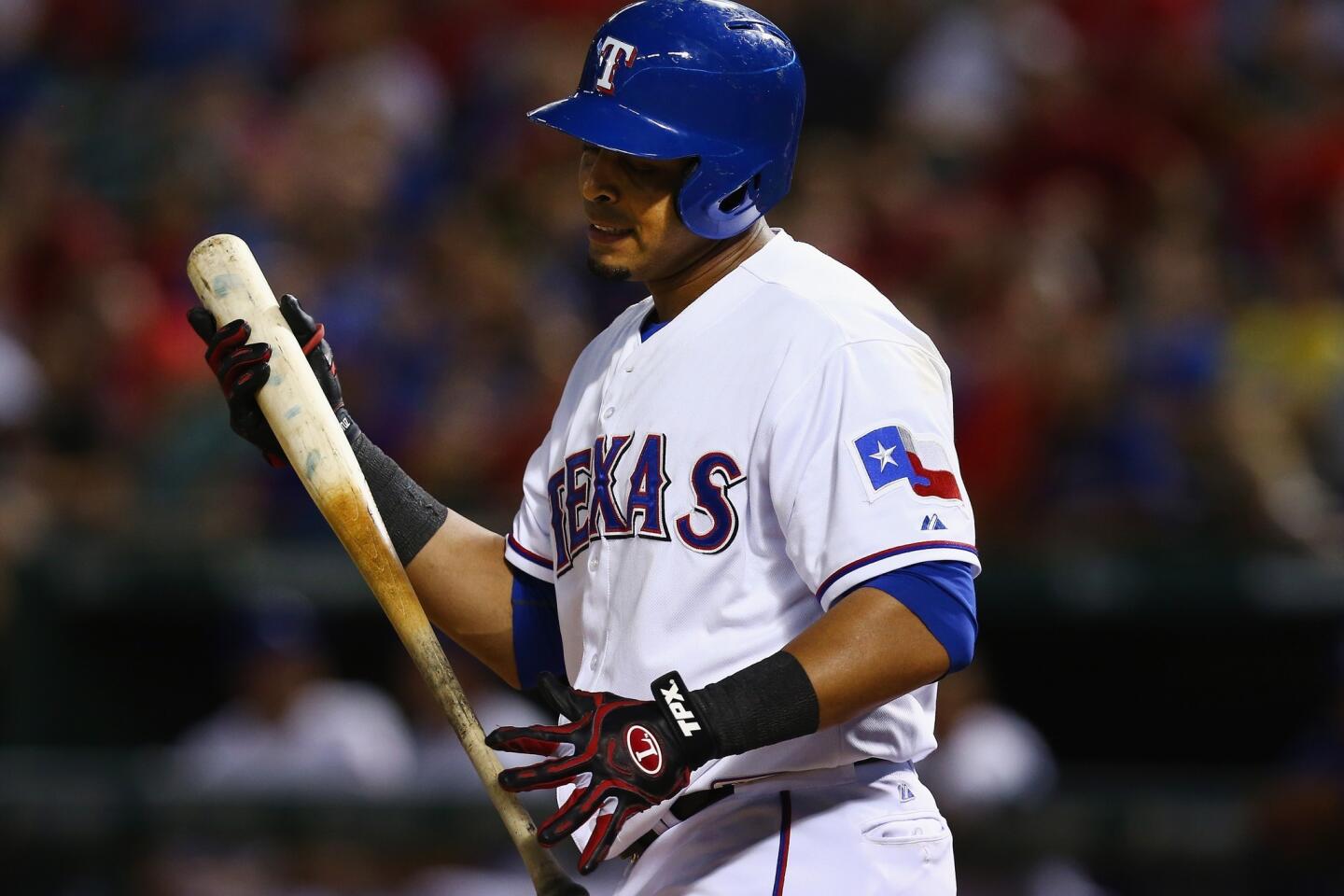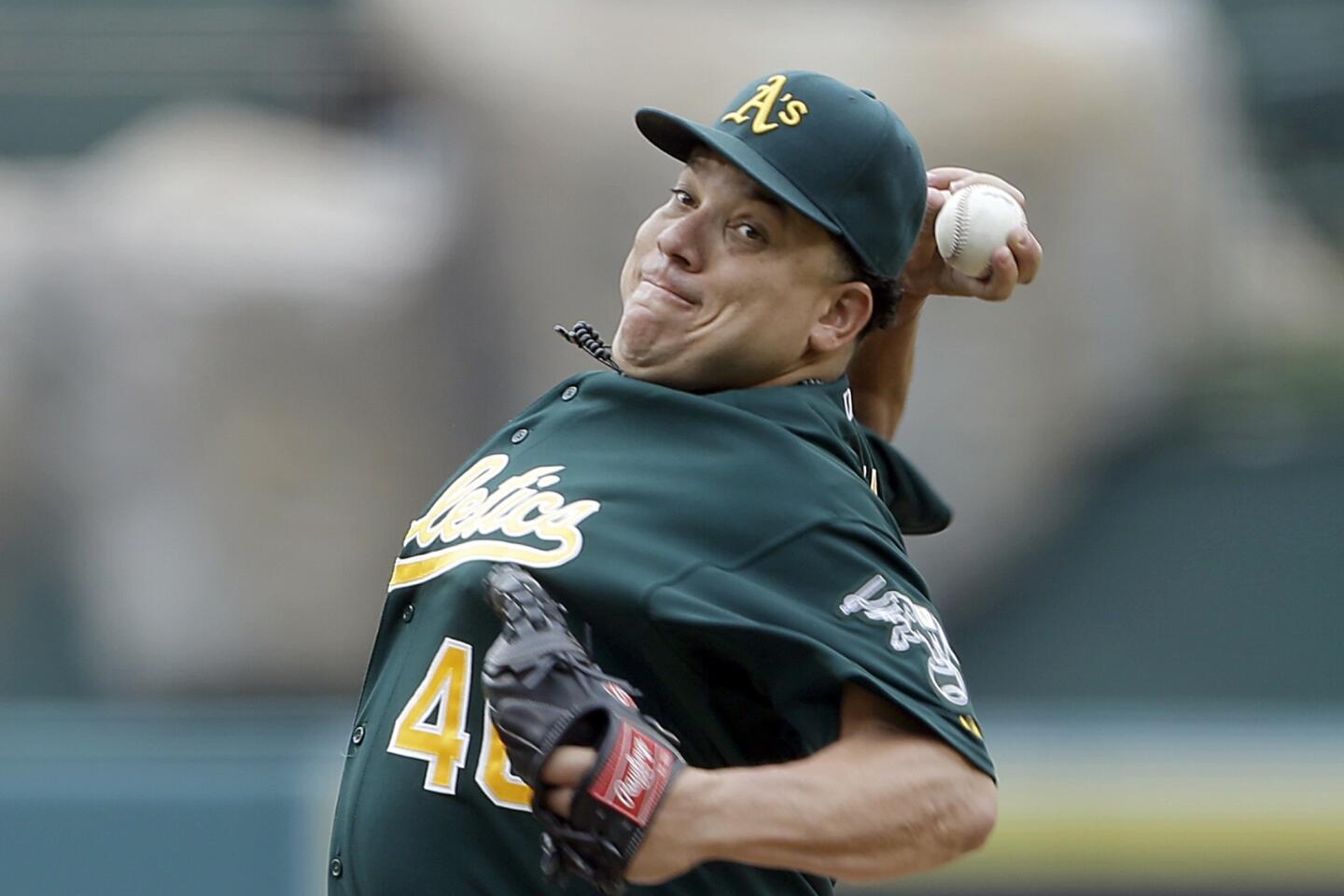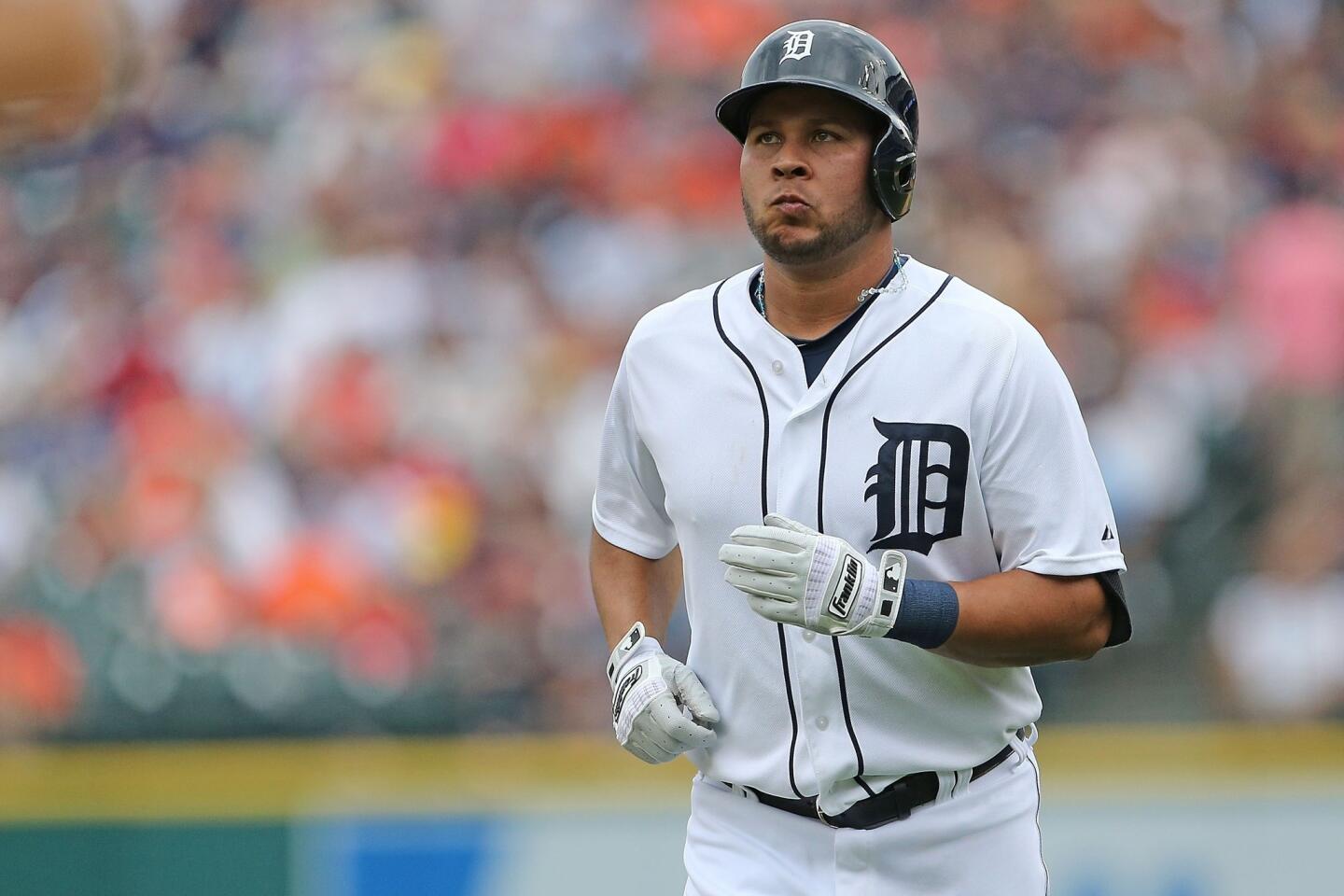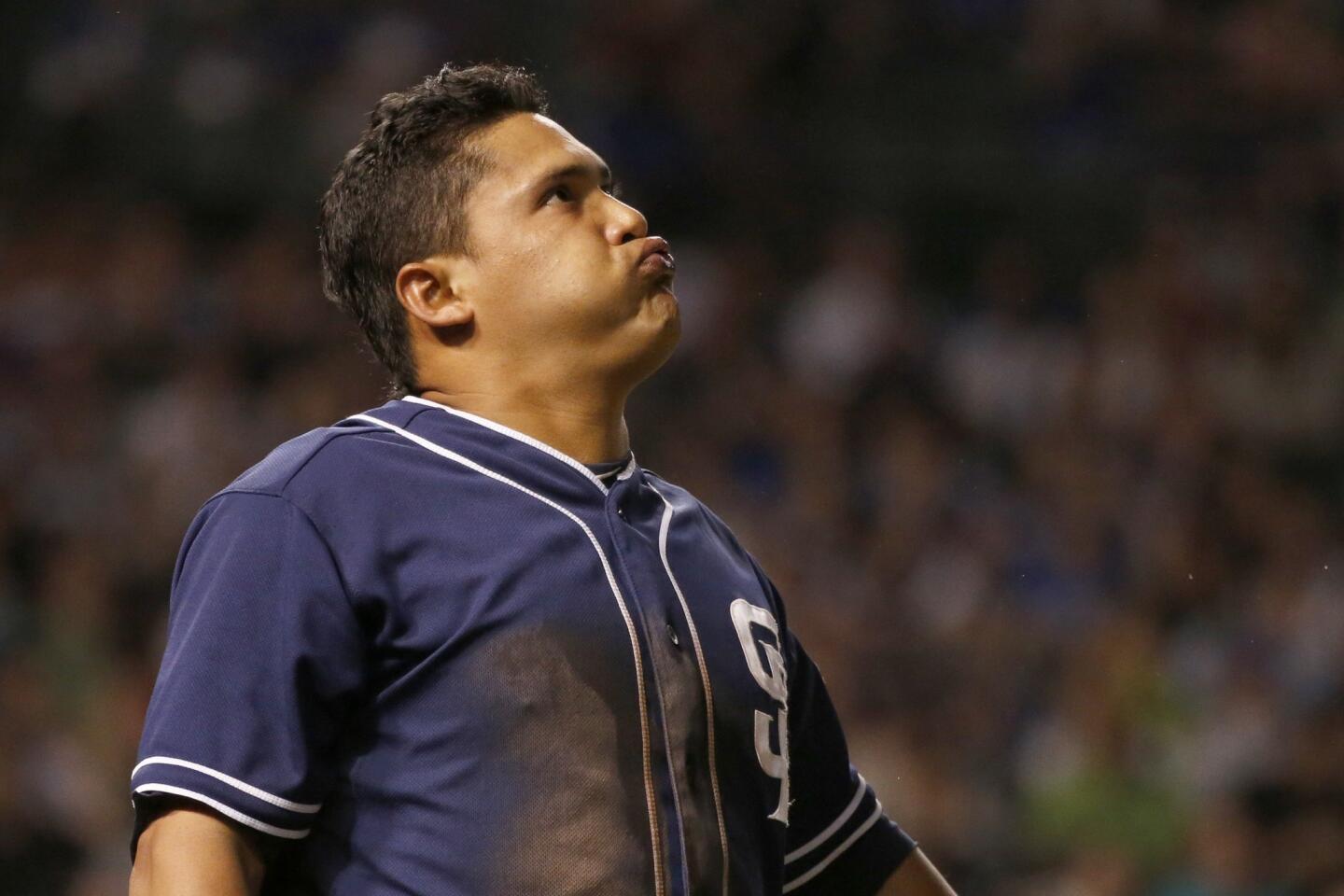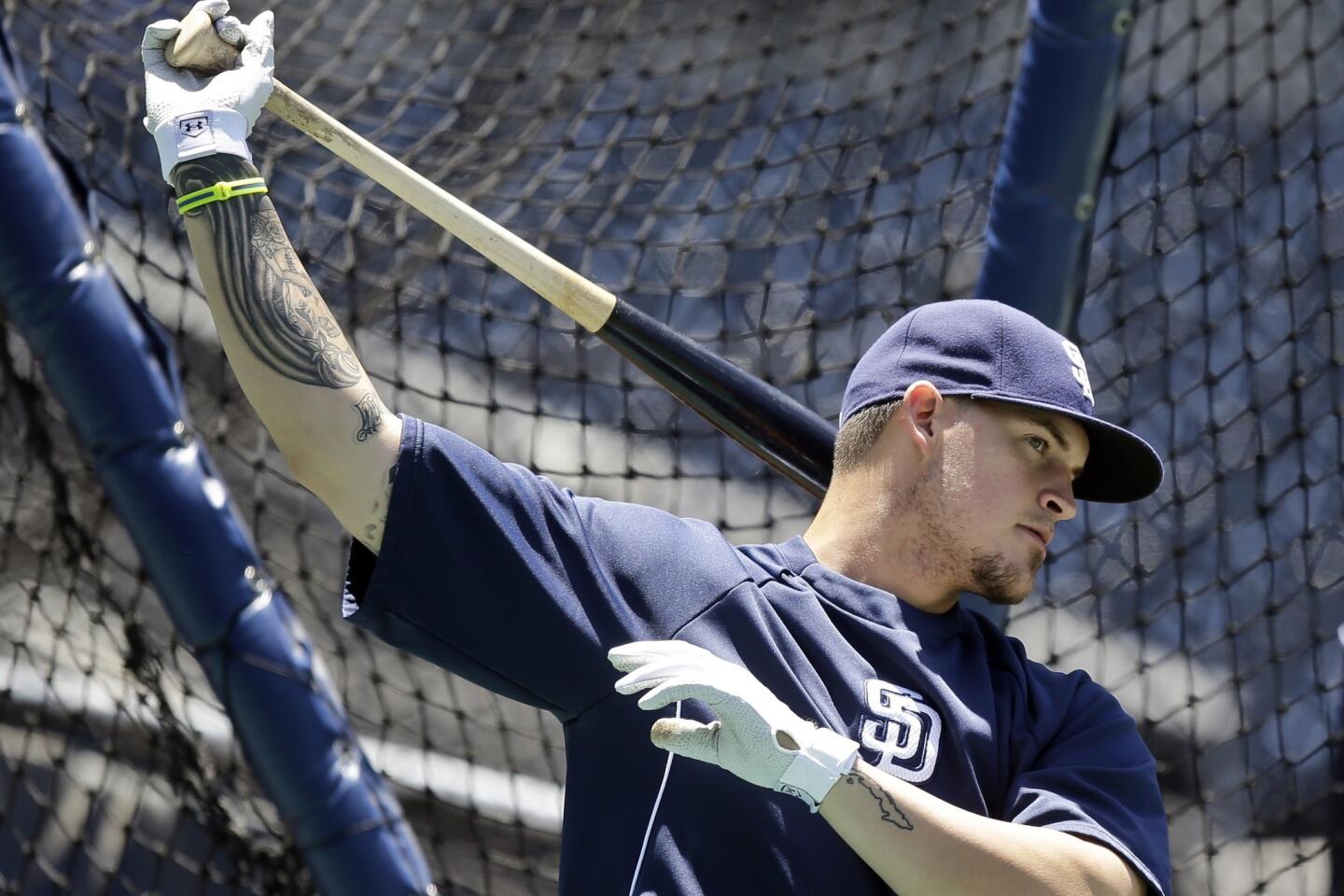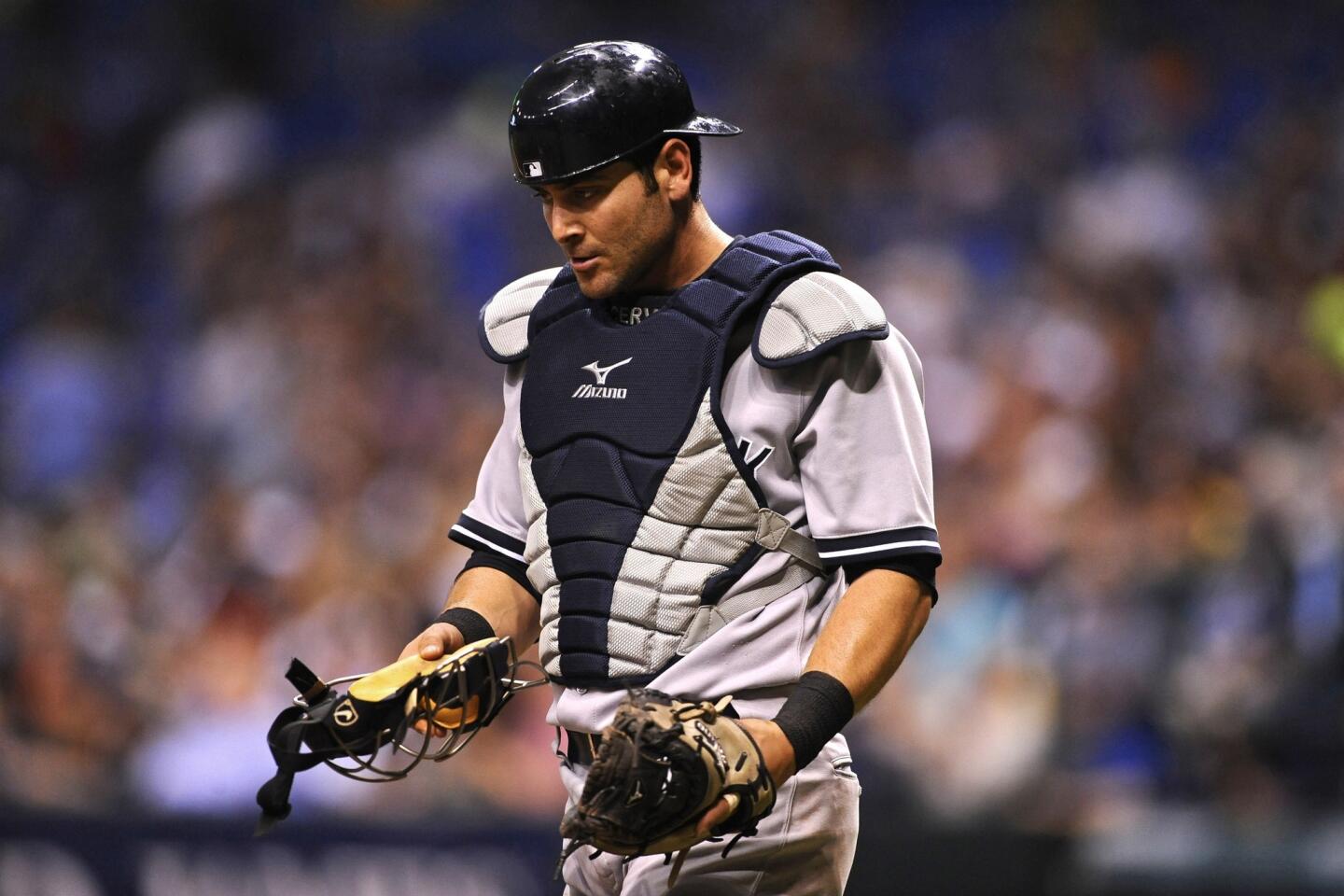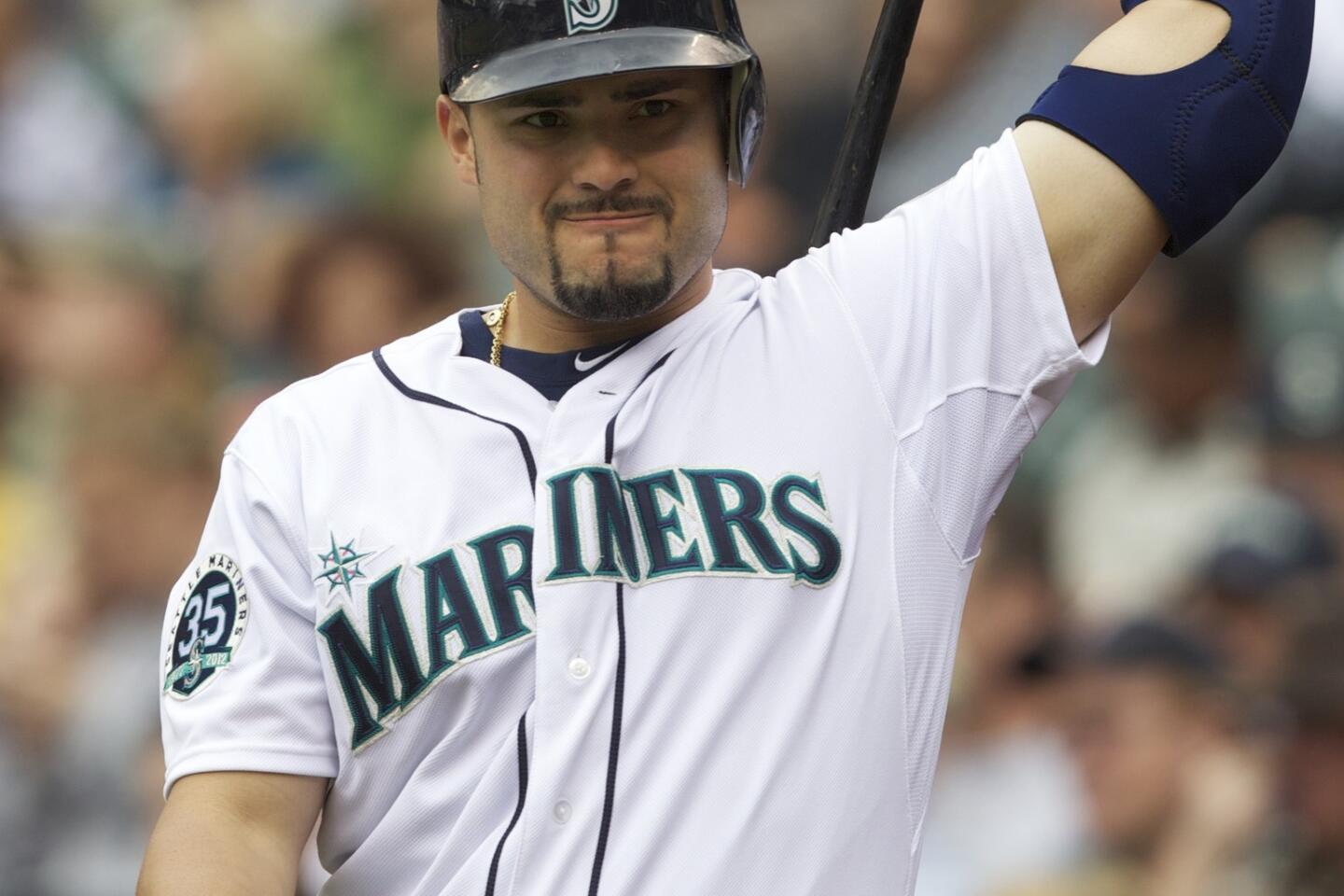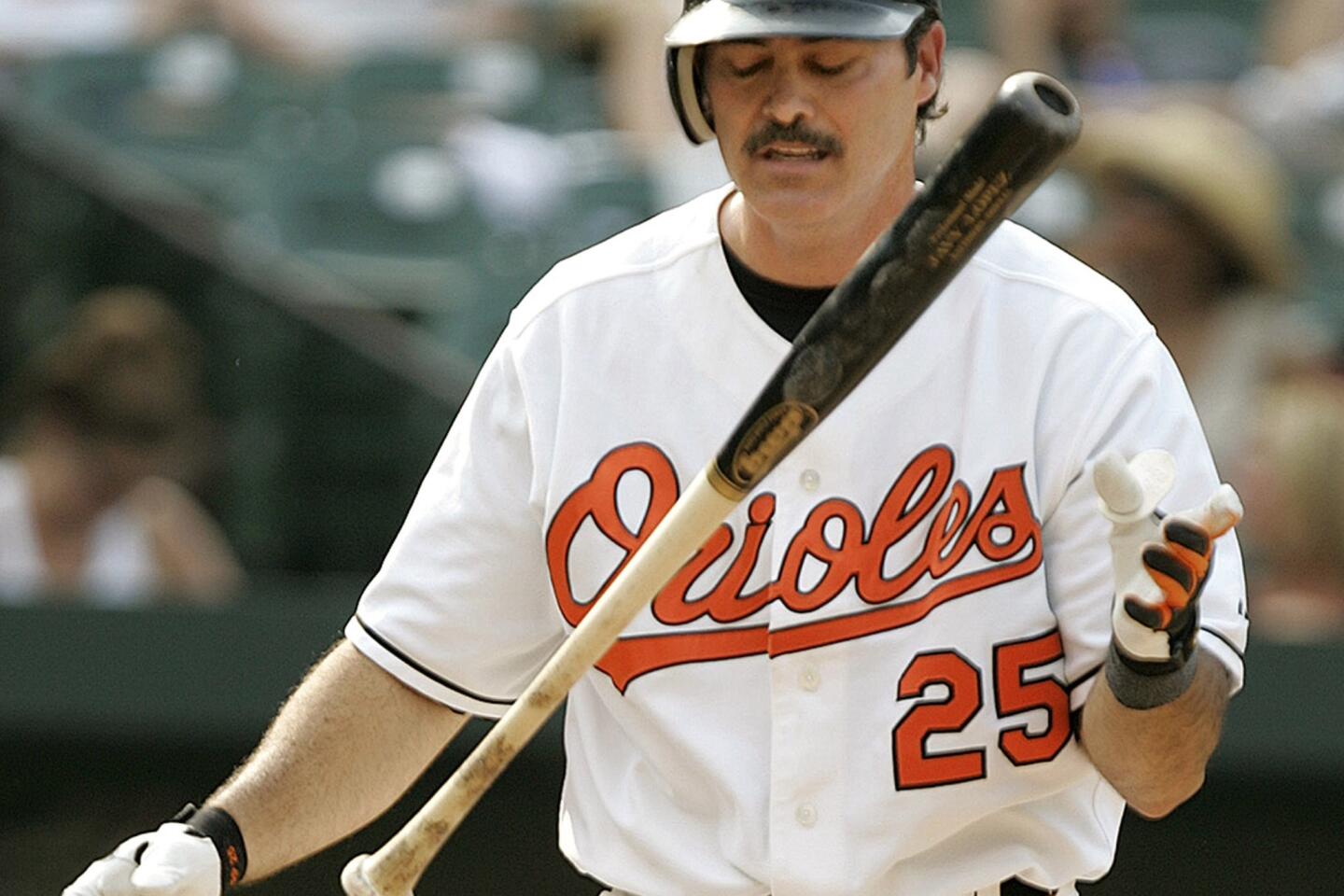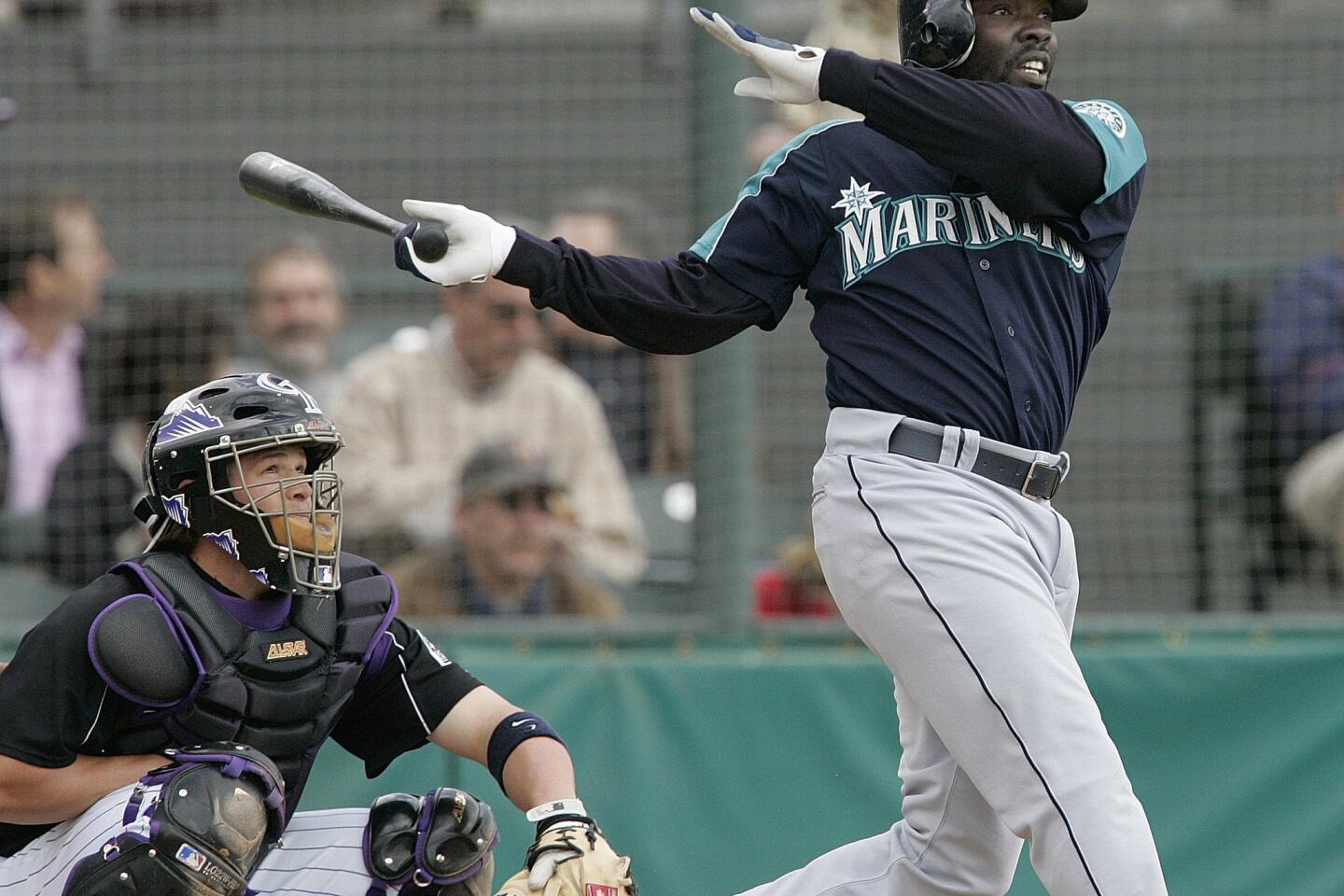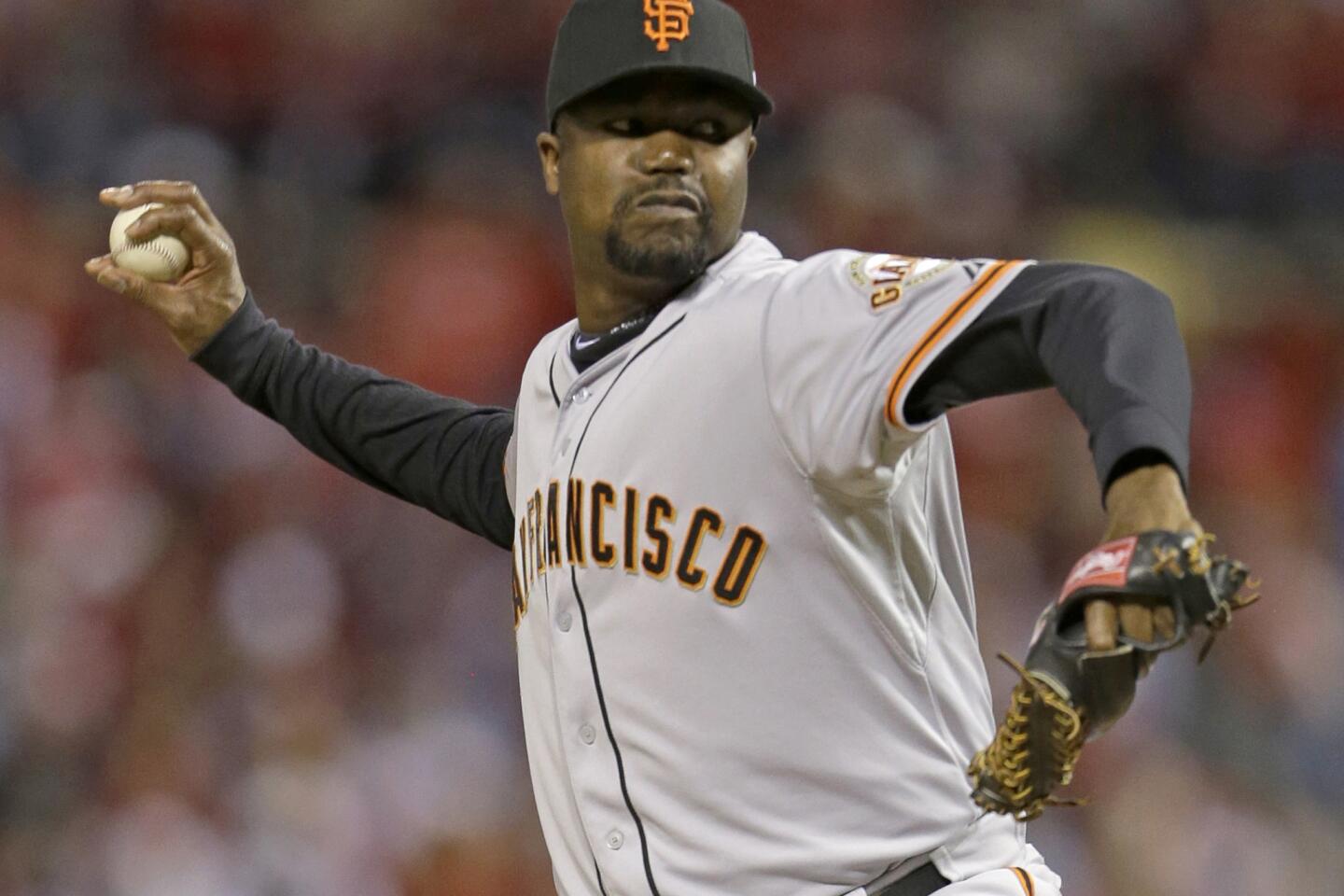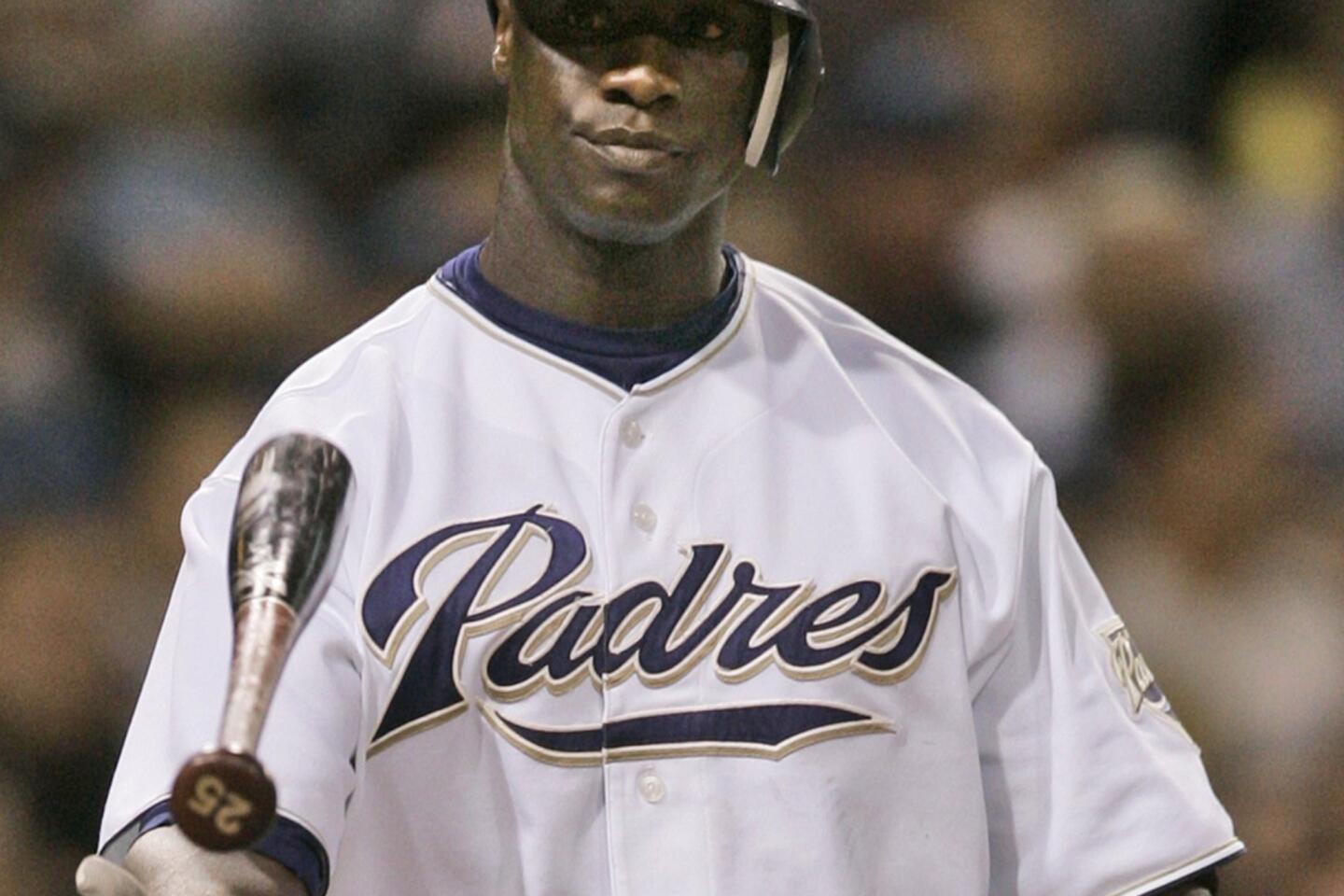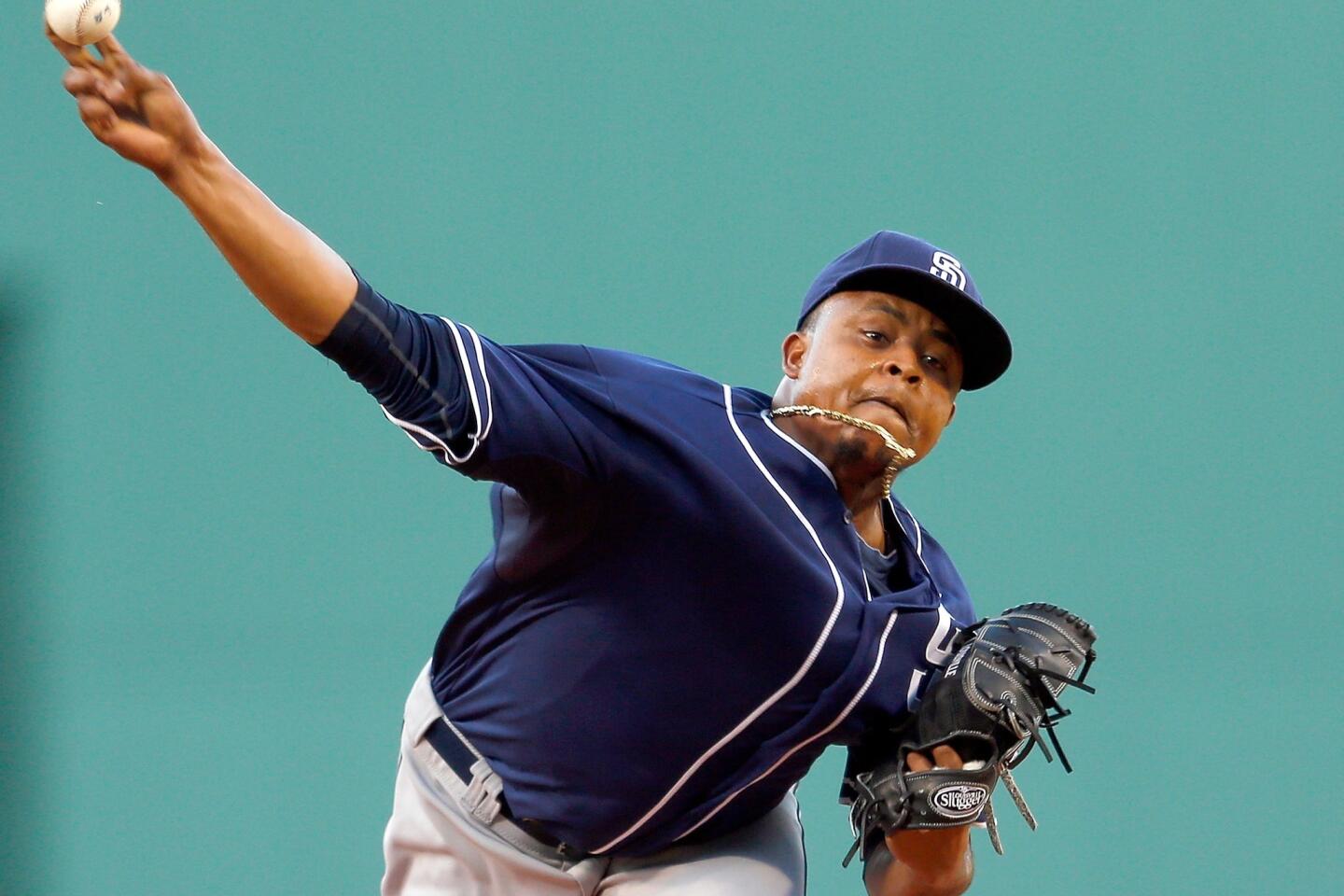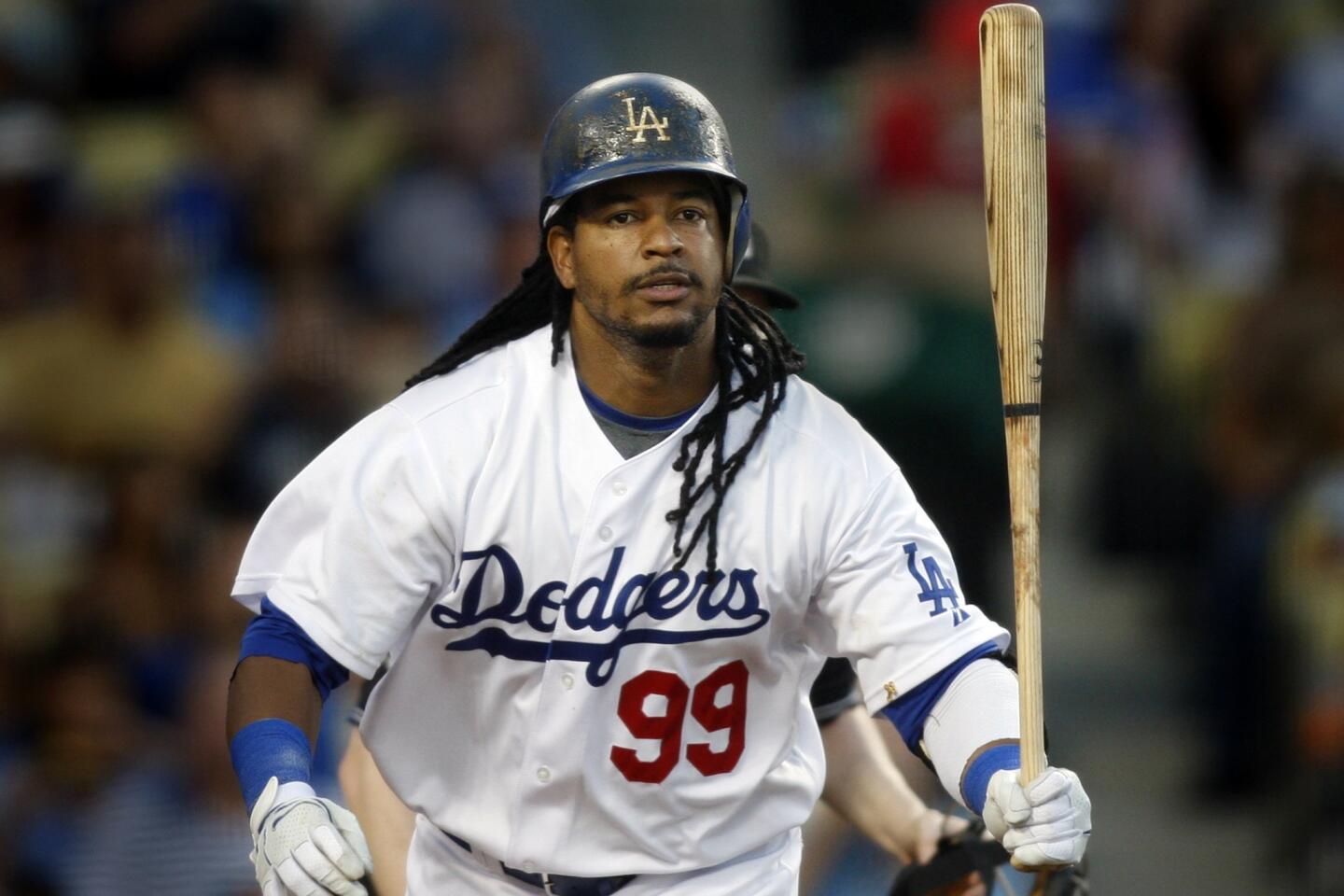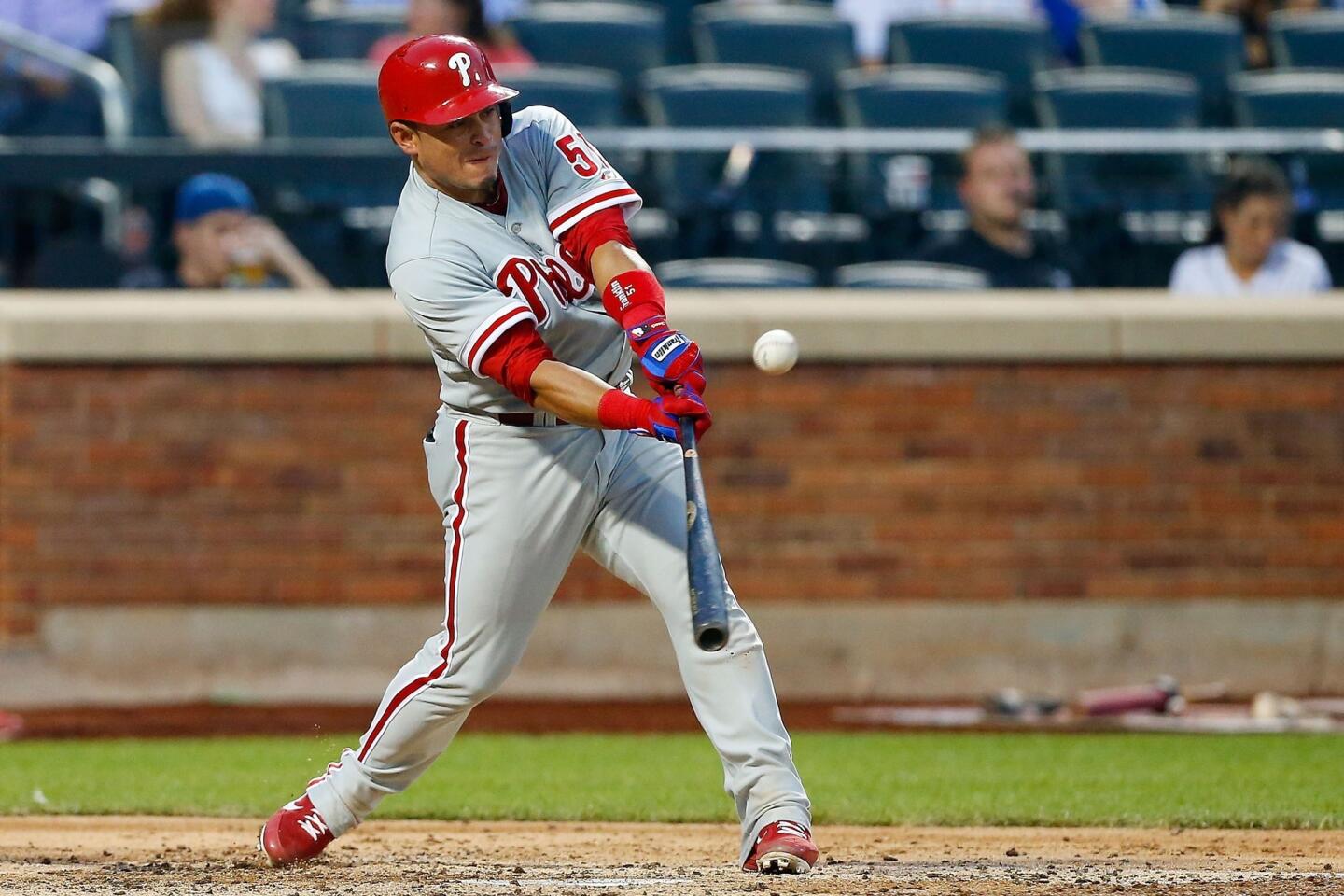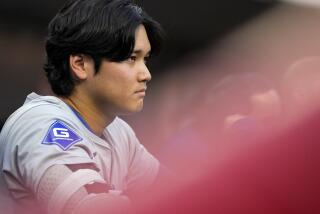MLB players are more united about cleaning up the game
- Share via
Baseball hasn’t seen the last of Nelson Cruz.
Or Jhonny Peralta, Everth Cabrera, Alex Rodriguez or any of the other players suspended Monday for using performance-enhancing drugs .
And that’s a problem. Because as long as cheating gets you no more time off than a strained muscle would, there’s little chance the sport will ever become clean.
“Fifty games?” Angels Manager Mike Scioscia said of the suspension for a first-time drug user. “That’s about what a hamstring pull is.”
In other words, it’s a penalty that hardly fits the crime. If that wasn’t obvious enough before Monday, it certainly is now. The suspensions of the Biogenesis 13 has galvanized opposition to baseball’s drug culture in the one place where it can have the most effect: the clubhouse.
Fifty games? Baltimore Orioles outfielder Nick Markakis wants at least a five-year suspension for first offenders.
“If I go out there and rob a convenience store, I know the consequences that are coming with it,” he said. “We are all adults here.”
Eight years ago, the players’ union had to be dragged kicking and screaming into an agreement that included a 10-day suspension for a failed drug test. Now players are talking about lifetime bans.
“Everyone wants to get this out of the game,” said pitcher Chris Capuano, a Dodgers union representative. “Whether we’re going to see stiffer penalties going forward or something more after this, this is another good step in the right direction.”
Michael Weiner, the union’s leader, said the idea of tougher suspensions came up last winter and he expects it will be discussed with new urgency at the union’s executive board meeting in December.
“There is no question there are players who are in favor of higher penalties,” he said. “If that’s what the players want, that’s what they’re going to get.”
Meantime, Weiner and the union will be defending New York Yankees third baseman Rodriguez, the one player suspended Monday who said he would appeal his ban.
Weiner is in a tough spot.
Rodriguez has confessed to using PEDs earlier in his career. Major League Baseball says it has evidence that not only shows Rodriguez continued to use banned drugs, but he tried to cover it up by interfering with an eight-month investigation into Biogenesis, the shuttered South Florida anti-aging clinic at the center of this latest scandal.
Yet, Rodriguez, the highest-paid player in the game, will continue to draw his salary with Weiner in his corner as an enabler — exactly the kind of hypocrisy rank-and-final union members want to end.
“Something needs to be done, because it’s still going on,” said Baltimore reliever Darren O’Day, the Orioles’ assistant union representative.
Rodriguez isn’t the only prominent player who has been rewarded for breaking the rules. Cruz and Peralta will probably return to their teams in time for the playoffs, where they’ll have a chance to win an extra $400,000 if their teams — the Texas Rangers and Detroit Tigers, respectively — win the World Series.
Both players, selected All-Stars this season, are also likely to cash in big as free agents this off-season. Cruz, who averaged 27 home runs over the last five seasons, will be the top right-handed slugging outfielder on the market; Peralta, who raised his batting average 66 points this season, will the best-hitting shortstop.
Over the last three seasons, only two players suspended for drug use played for less money the next season — and four made at least $1 million more.
It’s unlikely that Monday’s suspensions will stem that tide — not with Rodriguez still owed nearly $100 million by the Yankees and Ryan Braun, who agreed to a 65-game suspension last month, due $117 million from the Milwaukee Brewers.
But the suspensions have started a discussion in clubhouses all over baseball, and that is already leading to calls from the union for stricter penalties and fewer rewards. And when was the last time you heard a union ask management for tougher regulations?
“It’s evolving,” Scioscia said. “I remember when the suspensions, at first, were none. It was a fine. As time goes on you might see some deeper penalties.
“But the message is clear. It’s coming as strongly from the players’ association as it is from Major League Baseball. That’s why I think this thing will grab legs and hopefully get cleaned up.”
Twitter: @kbaxter11
Times staff writers Mike DiGiovanna and Jim Peltz contributed to this report.
More to Read
Go beyond the scoreboard
Get the latest on L.A.'s teams in the daily Sports Report newsletter.
You may occasionally receive promotional content from the Los Angeles Times.
